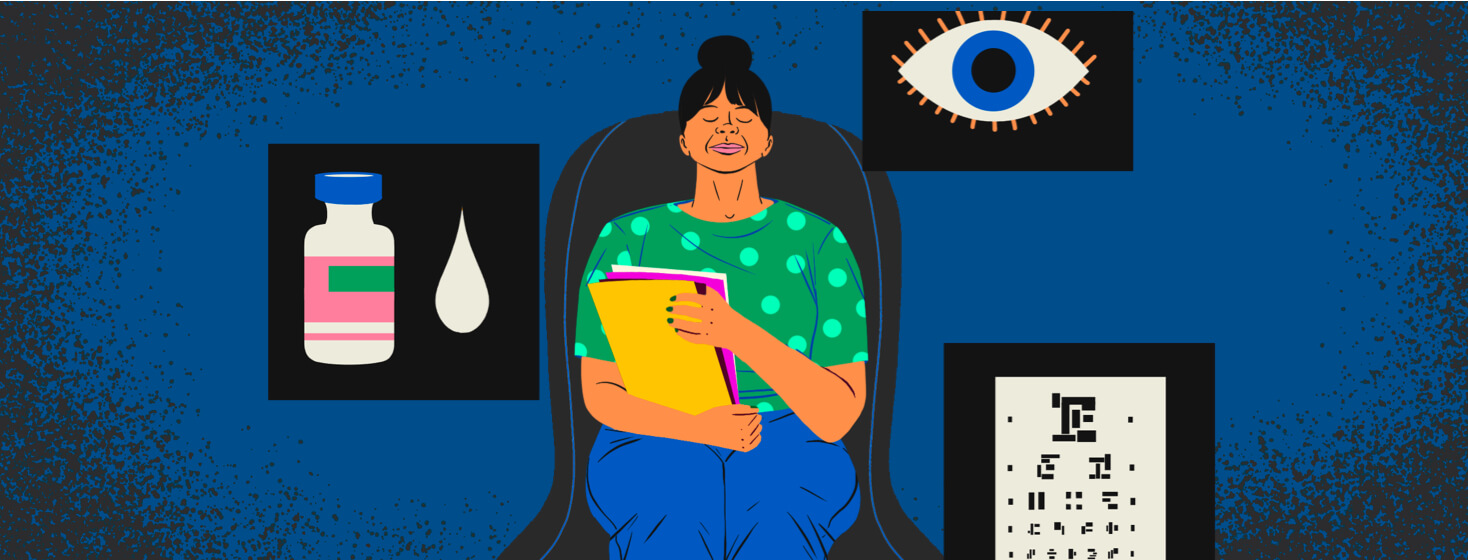A Thyroid Eye Disease Conversation Guide for You and Your Doctor
Thyroid eye disease (TED) is a rare autoimmune disease. An autoimmune disease causes your immune system to attack healthy cells in your body by mistake. With TED, the target is the muscle and tissue around the eyes.1,2
TED affects women more often than men. Around 19 out of every 100,000 people live with TED. Your primary doctor may not be familiar with the disease. Advocating for your health and an accurate diagnosis is necessary.1,2
Seeing a specialist for thyroid eye disease
Rare diseases like TED require a specialist for reliable care. Ophthalmologists (eye doctors) and oculoplastic surgeons (eye surgeons) understand TED better than your primary doctor. You may also see an endocrinologist for managing the thyroid aspects of the disease. They are doctors who specialize in diagnosing and treating hormone-related conditions.1,3,4
Communicating with your doctor is critical for managing your condition. You know your body best. You are responsible for ensuring your doctor knows everything you are experiencing. Learning self-advocacy can be overwhelming. Planning ahead gives you confidence for your visits.1,3,4
Preparing for your appointment
Before your doctor's appointment, take time to prepare. If possible, ask someone to go with you. The second set of ears ensures you do not miss the doctor's information. Bring someone who knows you well. They can provide the doctor with another perspective on your symptoms.3,4
Before the appointment, write down your symptoms. Detail their impact on your daily life. Examples might include:3,4
- I am sensitive to light. I can only read for 15 minutes before it hurts. Before I could read for more than an hour.
- Everything in my vision appears fuzzy. My eyes do not move easily. I am afraid to drive.
- My eyes water constantly. I go through a box of tissues in a week, wiping away the moisture.
The more specific you are, the better. Details give your doctor a picture of what TED means for you. Do not downplay your symptoms. Doctors cannot treat what they do not know is a problem.3,4
Other steps can also help you get the most out of your visit:
- Ask how many patients with TED the doctor treats.
- Prepare a list of all medicines and supplements you take, and bring it with you.
- Keep track of your symptoms in a journal or spreadsheet. Print out or bring the information to share with your doctor. Highlight any changes in symptoms.
- Bring a device, notebook, or paper and pen to take notes.
Questions to ask
Come to your appointment with a list of questions you need to have answered. Write them out in order of importance in case time runs short. Some possibilities include:3,4
- What symptom changes should I watch for?
- Should I use eye drops? What kind?
- What does an emergency TED situation look like? What do I do when it happens?
- What is the best way to contact you if I have questions between visits?
- How often will I schedule appointments with you?
- What over-the-counter drugs can I safely use? Will they help?
- Would cold or hot compresses be helpful?
Mental health impact
TED affects more than your eyesight. Vision is our window to the world. When it becomes compromised, you might struggle emotionally. You may grieve that you cannot read your favorite books. An inability to drive can limit your independence. And it can feel isolating if you have lost the ability to see your child or grandchild play soccer, dance in their recital, or perform in school music programs.
Many symptoms of TED can affect your emotional well-being. You may feel angry or depressed and want to withdraw things you once loved. Be sure you tell your doctor about these symptoms as well. Your doctor can recommend treatment options or support groups. These help manage the mental health aspects of TED.1

Join the conversation